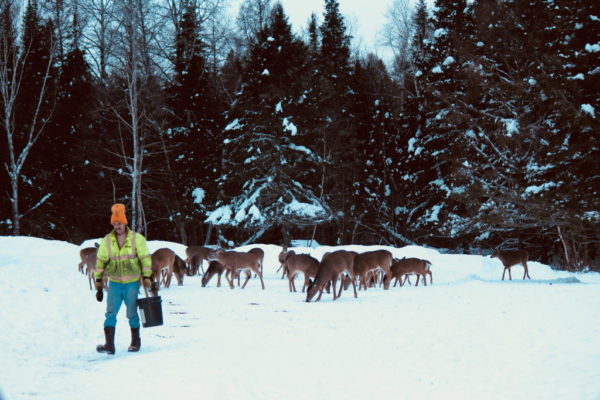
Up in the remote Maine town of Allagash — you’ll get there just before the pavement ends and logging roads head into the big woods — Hilton Hafford is one of about a dozen town residents who regularly invite “neighbors” for dinner during the rugged winters.
Last year alone, Hafford will tell you, he distributed 25,000 pounds of feed for those neighbors, a herd of whitetail deer that takes up residence in town every winter. Add in the grain spread by other Allagash residents, and you’ve got the makings of a major feeding operation that began more than 30 years ago.
Similar efforts exist in other rural Maine communities, as townsfolk address what they see as a serious problem: Deer which, according to localized reports, would starve without human intervention.
Those actions fly in the face of the stated official position of the Maine Department of Inland Fisheries and Wildlife, which advises Mainers to avoid feeding deer supplemental grains for a number of reasons.
But as snow drifts grow and cold weather continues, across the state, people like Hafford spend a portion of each day with buckets in hand, spreading food for the deer that surround them.
The County is pleased to feature content from our sister company, Bangor Daily News. To read the rest of “Despite potential negative consequences, many still try to ‘help’ by feeding deer during the winter,” an article by contributing Bangor Daily News staff writer John Holyoke, please follow this link to the BDN online.






